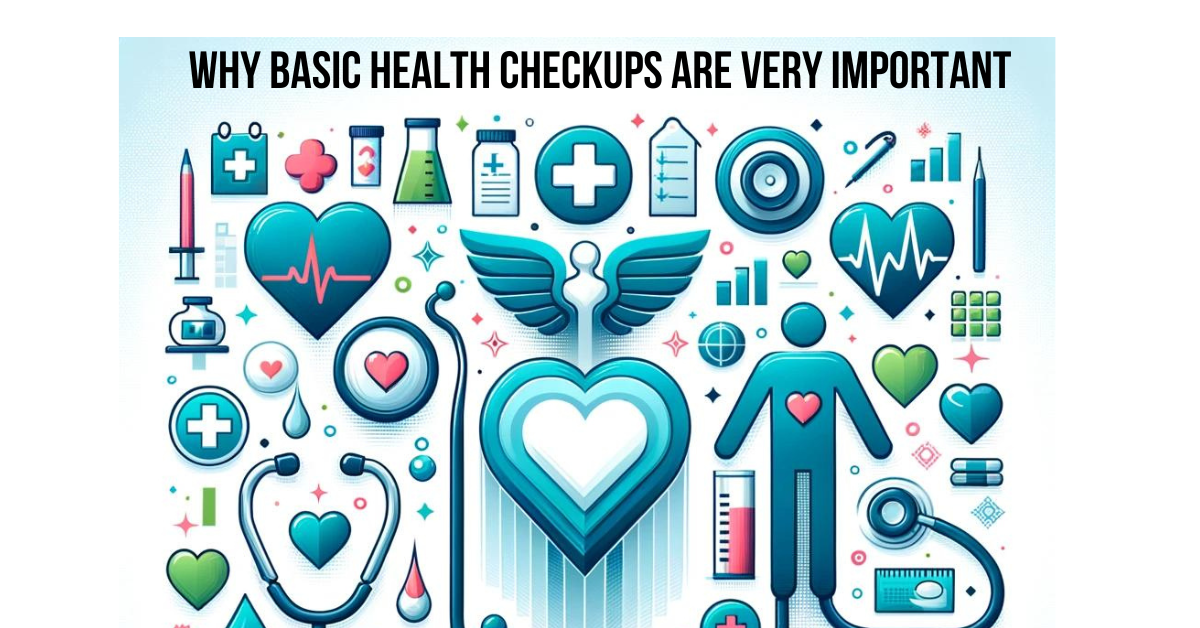In today’s fast-paced world, maintaining optimal health is more crucial than ever. Amidst our busy schedules, basic health checkups play a pivotal role in ensuring our well-being. This comprehensive guide explores the significance of regular health screenings, the types of checkups you should not skip, and how these preventive measures can save lives.
Understanding the Importance of Basic Health Checkups
Basic health checkups are essential tools for detecting potential health issues before they become serious. These screenings can identify risk factors and early signs of diseases, providing an opportunity for timely intervention and treatment. Regular checkups can lead to better health outcomes, increased longevity, and a higher quality of life.
Early Detection and Prevention
One of the primary benefits of basic health checkups is the early detection of diseases such as cancer, diabetes, and heart conditions. Early diagnosis often leads to more effective treatment and can significantly increase the chances of recovery. Additionally, these checkups can uncover risk factors, allowing individuals to make lifestyle changes to avoid future health problems.
Cost-Effective Health Management
Investing in basic health checkups can save money in the long run by avoiding costly medical treatments for advanced diseases. Preventive healthcare is cost-effective, reducing the overall expenses related to healthcare by catching diseases in their nascent stages.
Enhanced Patient-Doctor Relationship
Regular checkups foster a stronger relationship between patients and healthcare providers. This rapport is crucial for personalized care, as it enables doctors to understand their patients’ health histories and tailor advice and treatments accordingly.
Key Components of Basic Health Checkups
Basic health checkups typically include a variety of tests and examinations designed to assess overall health and detect conditions early. These may include:
- Blood pressure checks
- Cholesterol level tests
- Blood sugar tests to screen for diabetes
- Body mass index (BMI) calculations
- Cancer screenings, such as mammograms and colonoscopies
- Immunizations updates
- Eye and dental exams
Who Should Get Regular Health Checkups?
Everyone, regardless of age or health status, should undergo regular basic health checkups. However, the frequency and type of checkups may vary based on age, gender, medical history, and risk factors. It’s essential to consult with a healthcare provider to determine a personalized checkup schedule.
Overcoming Barriers to Regular Health Checkups
Despite their importance, many people skip basic health checkups due to factors such as fear, lack of time, or misunderstanding their significance. Overcoming these barriers is crucial for maintaining health. Scheduling appointments in advance, understanding the benefits of preventive care, and finding a trusted healthcare provider can help mitigate these obstacles.
The Role of Technology in Health Checkups
Advancements in technology have made health checkups more accessible and convenient. Telehealth services, mobile health apps, and wearable devices allow individuals to monitor their health and communicate with healthcare providers remotely. These technologies can complement traditional health checkups and encourage more people to take proactive steps toward their health.
Conclusion
Basic health checkups are a cornerstone of preventive healthcare. They play a crucial role in early disease detection, cost-effective health management, and fostering a strong patient-doctor relationship. By prioritizing regular health screenings, individuals can take charge of their health, make informed decisions, and lead healthier, longer lives.
FAQs
- How often should I get a basic health checkup? The frequency of health checkups varies depending on age, sex, health status, and risk factors. Generally, it’s recommended to have a checkup annually, but you should consult with your healthcare provider for a schedule that best meets your needs.
- What are the most important tests during a basic health checkup? Important tests include blood pressure measurements, cholesterol and blood sugar levels, BMI calculations, and screenings for various cancers. The specific tests you need may vary based on your personal and family health history.
- Can basic health checkups prevent diseases? While checkups themselves do not prevent diseases, they can significantly reduce your risk by identifying risk factors and early signs of health issues, allowing for timely intervention and lifestyle changes.
